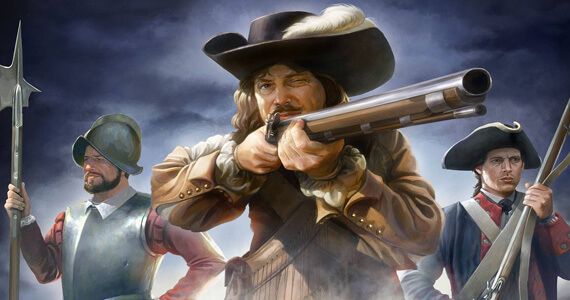Whether it's crafting a game where murdering eight sons to unite Russia and Scotland seems like a good idea or making a Reservoir Dogs trailer for a game about magic, Paradox Development Studio and Paradox Interactive have seemingly perfected the craft of developing engaging and deep strategy games.
Europa Universalis IV comes after the well-received Crusader Kings 2 and appropriately picks up right where its predecessor left off. Instead of worrying about dynasties is the 4X (explore, expand, exploit, and exterminate) followup, players now embody a nation throughout the ages of the Renaissance and industrial revolution, competing against hundreds of other nations of varying sizes in a game which gets complicated very, very quickly. Europa Universalis features a learning curve so steep that new players will have to accept they'll be losing more often than not, but that's what makes the game so good.
History buffs will be blown away at the in-depth accuracy of Europa Universalis IV, which features several hundred years worth of accurate history along its timeline, running from the year 1444 and allowing players to play through until 1820 as Europe expands to the New World. Gamers can choose any nation through this timeline (allowing for hundreds of choices) and watch as their nation either expands through war, trade or intrigue - or, as often as not, gets hindered and butchered by a surprisingly intelligent AI nations who crafts their own alliances and perform actions to their own agendas. Players can also play multiplayer online or via LAN.
The ability to help in the crafting of these alternate-history timelines is one of the best and most entertainment aspects about Europa Universalis IV. Players will enlist generals and merchants to their cause, encouraging trade routes where required and embedding themselves into national-scale politics, even organizing royal marriages as a diplomatic strategy.
Players can set ambitions for themselves to achieve (the AI does this as well), and conflict is always afoot somewhere across the map. The AI will act upon their ambitions straight away, immediately throwing challenges and soldiers at most players. Moving armies across the the world results in a small, numbered soldier icon trotted along a curved line through various countries and provinces - it doesn't sound very exciting, but most of the entertainment in Europa comes from the deep layers of strategy, as opposed to the graphical interface - or lack thereof.
When not warring, peacetime is just as busy for players as the game keeps them focused on economic research. This also presents the best time to build up forces as players will be guessing which nations to trust and which ones to betray. These so-called 'chess-matches' bring an air of uncertainty, anxiety and a downright fear for a game which, graphically speaking, is barely more advanced than Risk. To play the strategy game, players must navigate through a series of menus to invest in various technologies, religious and cultural items. The layers of menus in the interface is a design choice gamers must get used to in Europa and may be confusing for newcomers.
Empires will rise and fall as the years continue, and negotiating through a sea of threats while absorbing smaller nations is one of the things that makes Europa Universalis so fun. It's all about diplomacy, as ties are strengthened and some cut loose for the greater good of the nation. The Republic of Hungary could exist where France does today, and Newfoundland could be a Spanish Colony, but it's something players will have to roll with if they wish to succeed. Plenty of unique events will pop up as the game goes on, forcing players to adapt and make instantaneous decisions which can affect the state of their own nation, or impact the opinions of others. When players learn how to appropriately fight and expand, the objective is always to conquer - the more of the map a player controls, the more influence they have on the world.
As it seems to be with all Paradox Games, the biggest thing the game has going against it is the strenuous learning curve. Though Europa provides an in-game tutorial and an optional in-game hint system, the interface is so full of options that new players will have to find themselves adopting the Dwarf Fortress mantra - "losing is fun".
The complexity of Europa is a necessary evil however, as it is what allows for such amazing, intriguing political plots to unfold - and that's what makes Europa Universalis IV one of the best strategy games on the market. Players who rise past the initial confusion of a complicated user interface will uncover a detailed, well-oiled simulation capable of unfolding a dynamic world that will keep dedicated gamers on the edges of their seats for some time.
As in-depth as the strategy is, Paradox doesn't deliver on the graphical front. Whilst the same board-game layout from spiritual predecessor Crusader Kings 2 makes a return, albeit in brighter colors, the animations of moving soldiers look dated and tired. This is certainly not a game for those who require visual stimulation, which is undoubtedly one of the greatest barriers between Europa and a fanbase who might have otherwise loved this kind of game.
Despite those flaws, Europa Universalis IV provides such a deep, challenging and unpredictable experience that it will leave hardcore strategy fans sailing back for more. This isn't a game for the feint of heart - the game stretches through almost 400 years of history, but at times it feels like it'll take that long to learn it. Once it's mastered, however, each playthrough brings a fresh set of challenges and consistent entertainment.
Europa Universalis IV is available now on PC, Mac and Ubuntu.
-
Follow John on Twitter @Makelevi.

